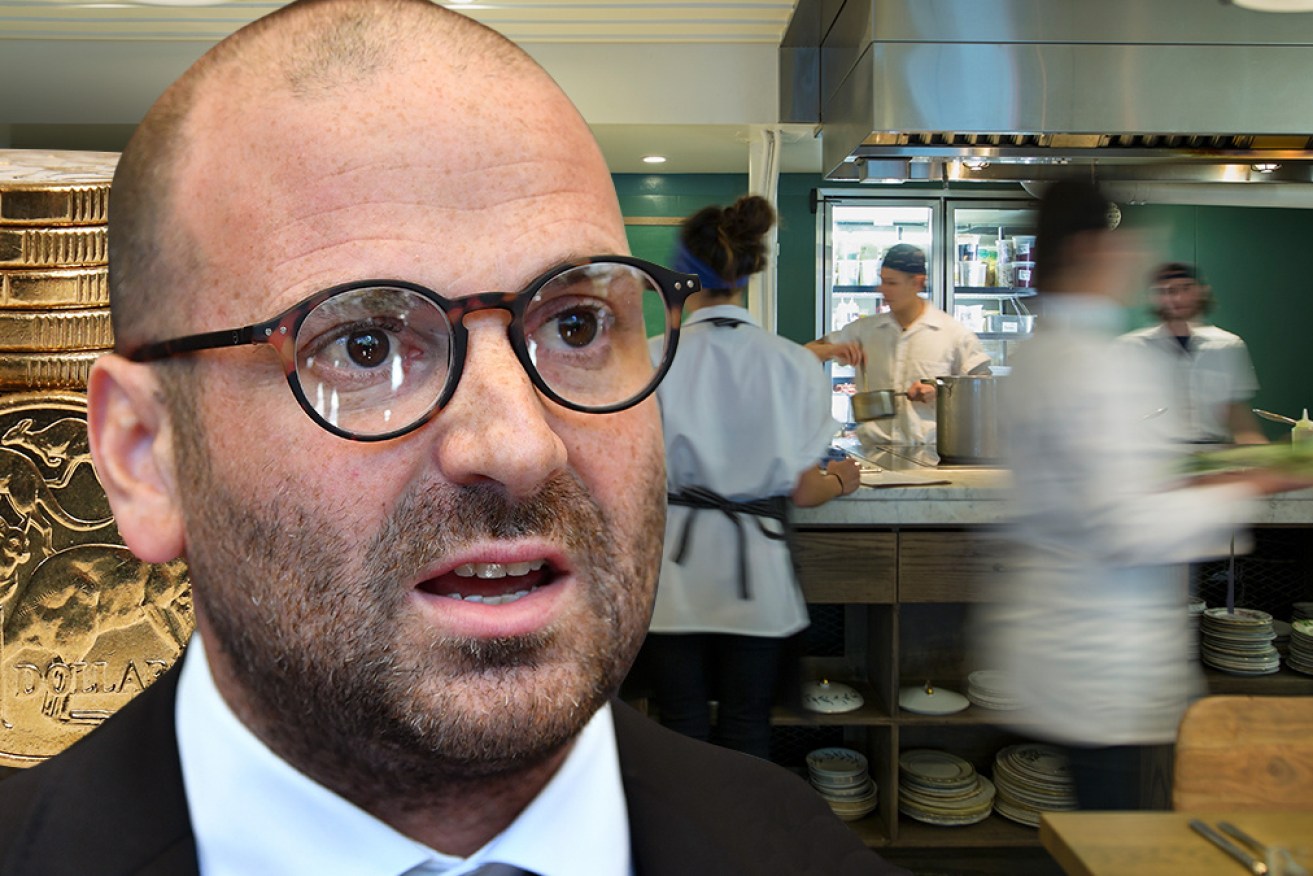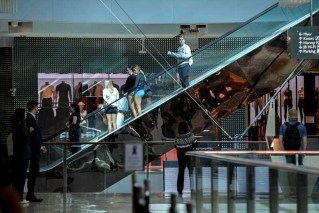‘It’s modern slavery’: More foreign workers in hospitality as industry rallies against exploitation


Advocates have said the George Calombaris wage theft scandal is just the 'tip of the exploitation iceberg'. Photo: Getty/AAP
The number of foreign workers imported to work in Australian restaurants and cafes has almost doubled in six years, with hospitality roles among three of the top four jobs the federal government considers “critical” to business success.
The chefs, cooks and cafe managers entering Australia on special skilled visas are most commonly from India, Italy, South Korea, the Philippines and Nepal, government data reveals.
As the spotlight turns on the hospitality industry after the wage theft scandal at the restaurants of celebrity chef George Calombaris, the evidence shows it is migrants who are most often exploited by restaurateurs.
Migrants make up only 6 per cent of the Australian workforce. But Fair Work Ombudsman statistics show a foreigner is the victim in almost two out of three exploitation cases taken to court.
Advocates fear a government-sanctioned “slave” economy preys on foreign workers who may know less about their rights or feel they have no choice but to put up with poor conditions to stay in Australia.
‘Never play with the citizens – you’ll never win’
Hospitality worker Darren Chan said his boss at a popular Melbourne cafe specifically hired international students and backpackers with little English.
The boss would overwork Mr Chan and his colleagues, he alleged.
Mr Chan said he was paid $14 an hour – below the $19.49 per hour minimum wage – and worked up to 60 hours a week with no overtime or penalties.
“For May this year they provided a payslip for one month under my name and on the payslip, it said my rate was $25.28 per hour,” the 26-year-old said.
“I think it was for tax-evasion purposes.”
Allegations of sexual harassment also emerged from women working at the cafe, as well as claims the boss was verbally abusive to male staff.
Mr Chan said workers felt they couldn’t speak up.

A text exchange between Mr Chan and his female colleague.
“They [employers] are not afraid of the FWO … they just tell us ‘OK go and report us’,” he said.
“One week before I left, the boss told me, never play with [Australian] citizens, you’ll never win. They aren’t afraid of being punished.”
Dominating disputes
Since the Coalition came to power in 2013, there have been 28,346 temporary skill shortage visas (previously called 457 visas) granted for chefs, cooks and cafe managers.
The influx of these workers represents a 78 per cent increase compared to the previous six years during the Rudd-Gillard governments, when 15,930 visas were awarded for these roles.
The hospitality industry doesn’t just dominate the world of skilled visas, it’s also completely over-represented in fair work disputes.
“In terms of hospitality, more than half of our matters filed in court in 2017-18 involved a business from this sector,” a FWO spokeswoman said.
“Thirty-six per cent of anonymous tipoffs received by the FWO during this period were also from workers within this sector,” she added.
The industry is suffering from a chronic labour shortage, but are migrant workers needed because Australians don’t want to do the jobs?
Or are there so many restaurants and cafes now that there aren’t enough locals to staff them? And who is to blame for the exploitation?
‘Owners prefer migrants’
Chris F Wright from the University of Sydney Business School said there isn’t a direct correlation between underpayment and the skilled visa intake.
But he said the school’s research showed some owners preferred migrant workers.
“We found a significantly higher proportion of hospitality owners, compared to other industries, preferred people on visas to other Australian workers,” Dr Wright said.
“When we dug into this, it was the perception these workers are easier to control. We identified a strong preference for sponsoring migrant workers on visas,” he said.
“What we found was, it wasn’t so much about their qualifications, but the perception they were more loyal.”
‘Modern-day slavery’
Shine Lawyers employment law specialist Will Barsby was more damning in his assessment of the hospitality industry, comparing the level of exploitation to “slavery”.
“It’s never ending. We’re only seeing the tip of the iceberg,” he told The New Daily.
“We’re living through a history where one-day people will say ‘How did we let this happen?’ he said.
“It’s only the beginning in my view. There are so many more big and small businesses out there that are still partaking in this behaviour. It’s comparable with modern-day slavery.”
But hospitality consultant Tony Eldred claimed exploitation was not as widespread as people think.
“It’s an issue, but it’s not a broad issue. Just because a few high-profile places are being pinged … that’s often because one hand doesn’t know what the other is doing,” he said.
He pointed to a different problem: A development boom.
“The essential problem is way too many restaurants, it’s exploded,” Mr Eldred said.
“The businesses are eating each other. It’s not that Australians don’t want to work, there’s just not enough of them wanting to match the explosion.”
He said the industry relied on skilled migrant workers, but that exploitation was no more prevalent in hospitality than in other industries.

Former MasterChef judge George Calombaris apologised for underpaying staff. Photo: AAP
Underpaid for 12 years
But some don’t agree.
Australian hospitality workers The New Daily spoke to said it was no wonder there was a shortage of willing workers.
Sarah, who held various roles from cook to cafe manager for 12 years in Melbourne’s hospitality scene, said she would never go back after being underpaid her whole career.
“I’ve only been paid award wages at one place,” she said.
“A good boss was a boss who would give you perhaps more than a 15-minute break for lunch, a boss who lets you have a free meal.
“When you’re being paid well below award wages, you’re living below the poverty line.”
- Related: Ex-waitress wants Calombaris dumped
Bianca, a cook, said she worked in a high-stress, high-pressure environment for little reward.
“Being yelled at by the other cooks, the head chefs, having things thrown at you, having people push you out of the way – all of that is effectively normalised,” Bianca said.
“Because there’s very little regulation, people have very little power.”









